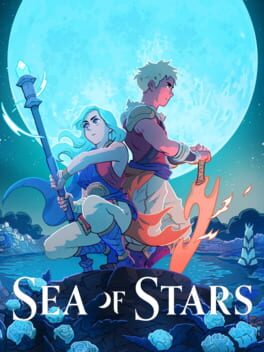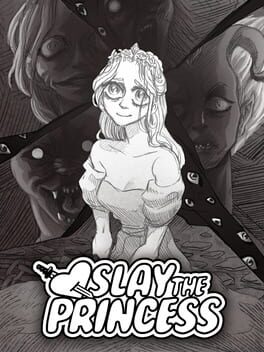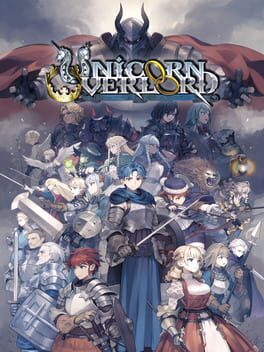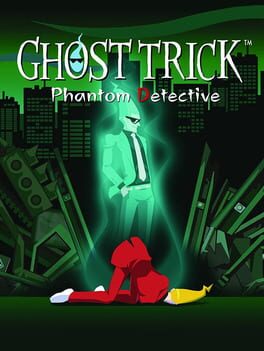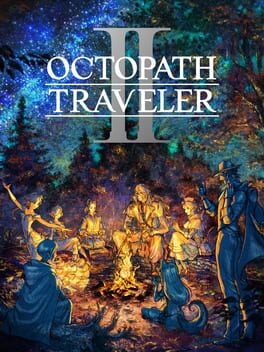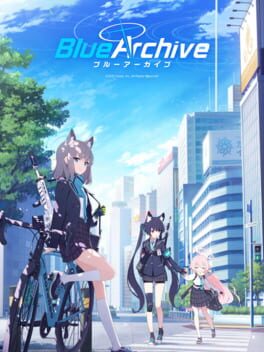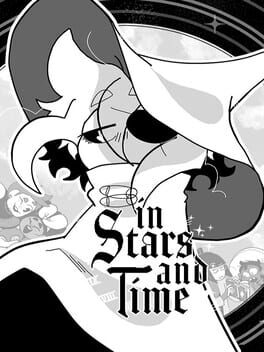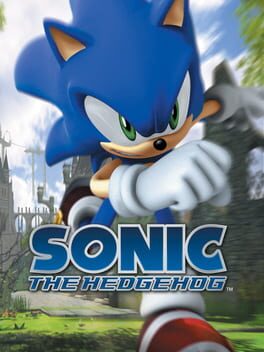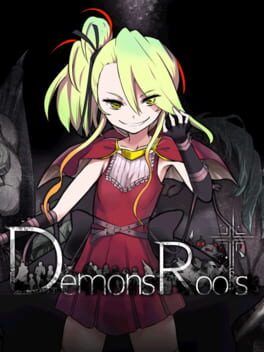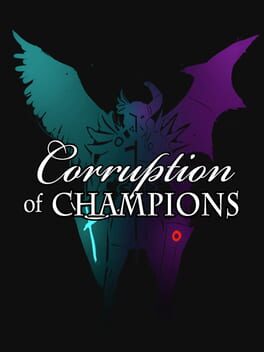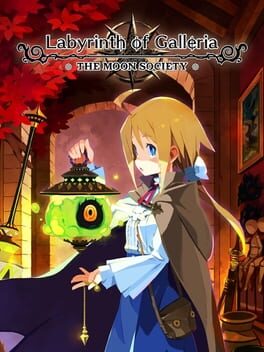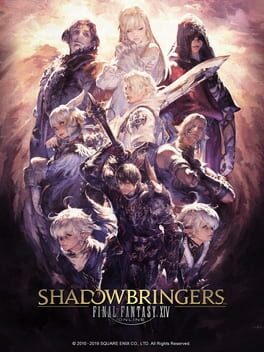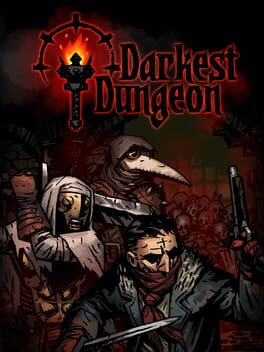ContessaKoumari
2023
The bottom line is that Sea of Stars is an ultimately mediocre title that manages to cobble together its form by stealing things from a dozen other, older, better titles. Each thing it steals is implemented worse than the game it steals from, but still good enough to not be bad. The act of playing the game is fine. It's Fine. It is the ultimate definition of Mid. Mid of Stars.
To list all this game's faults on a lower level than "wow it looks pretty" would to be sit here all day, but I can't help but go over some of the biggest issues I had during my time with it.
The first and foremost is the writing and plot--the plot by itself is pretty standard, just your basic "go kill the demon king" storyline when you get down to it, but its building off lore from a game pretty notorious for having nonsense lore(The Messenger) so it ends up being nonsense here as well--none of the worldbuilding details or twists really ever land because you never get the sense that this world is anything more than levels in a video game. There's like maybe five actual towns in the game, for gods sake. This is compounded by the character writing that manages to be completely uninteresting at best, and positively dreadful at worst. The worst of it is a major side-character in act 1 that speaks exclusively in video game references, who basically ruins every scene she is in and kill what little pathos there can be in this game. Once she steps aside, it gets a little better and I'd even say act 2 cooks for a short time, but then they do the very bold decision to put the only two characters with any sort of internality on a bus until literally the final boss door. Its frustrating. That's not to speak of the other issue with the game not respecting itself, every scene that gets a little tropey immediately gets a Marvel quip to kill any tension and remind you you're seeing scenes played out in a dozen older games with way more self-respect. It sucks.
Then, there's the game pacing. As mentioned, the game has I think six actual "towns" in it, and you only visit each of them at a single point in your journey which means you consistently go 4+ dungeons at a time without any "downtime" where you can sidequest, play minigames, talk to npcs etc. They completely missed the memo on the "vibes" of a jrpg in spite of aping these games so hard--those points where you're just sort of idly walking around town are important and this game just doesn't have any of that. This is compounded by what I'd call location issues--backtracking even after you get to the end of the game with all movement options is painful, consistently involving traversing old dungeons or going through two-three extra screens to get to where you need to go, so the game actively disincentivizes you from trying to do anything besides progress the main quest.
The actual gameplay is split into two--puzzle dungeons generously described as "Crosscode but worse" and combat described as "Mario RPG but worse", double-hampered by piss-easy difficulty. Like, this game has 8 different accessibility options but I struggle to find how anyone would need them when the game difficulty is toggled so low.
Which sucks, because the one place the game excels in is the economy/item management, you have a very limited inventory that heavily incentivizes consumable usage, and also the gold is a really tight resource that you have to manage. In theory, this is great and adds an attrition factor the long dungeon dives mentioned earlier--in practice, the difficulty tuning being so low means you never interact with those systems because you can easily go through the game never using consumables which means you can sell all the crafting supplies for a surplus of money.
Even the OST manages to not really be striking, like its perfectly serviceable but I never really found myself humming a tune or getting hyped by a song. Its just, rpg music. You could replace it with the rpgmaker default soundpack and I think the experience would have been exactly the same.
And yet, in spite of all this, I still finished the game including the true ending that demands like 95% completion because it was juuuust that not bad enough that I could sunk cost fallacy my way through it.
The final thing I'd leave you with that speaks to the shoddy nature of the game is the opening--after the framing device, the game opens with our new heroes going off to their first mission. You fight exactly one tutorial battle vs a goblin, then it forces you into a flashback where you see their backstory. This last an hour and leads up to exactly the beginning of the game. Why did they have the flashback? Why would you not just start the game from the backstory sequence? Its the sort of thing literally any editor would notice and rectify immediately.
Truly, the Mid of Stars.
To list all this game's faults on a lower level than "wow it looks pretty" would to be sit here all day, but I can't help but go over some of the biggest issues I had during my time with it.
The first and foremost is the writing and plot--the plot by itself is pretty standard, just your basic "go kill the demon king" storyline when you get down to it, but its building off lore from a game pretty notorious for having nonsense lore(The Messenger) so it ends up being nonsense here as well--none of the worldbuilding details or twists really ever land because you never get the sense that this world is anything more than levels in a video game. There's like maybe five actual towns in the game, for gods sake. This is compounded by the character writing that manages to be completely uninteresting at best, and positively dreadful at worst. The worst of it is a major side-character in act 1 that speaks exclusively in video game references, who basically ruins every scene she is in and kill what little pathos there can be in this game. Once she steps aside, it gets a little better and I'd even say act 2 cooks for a short time, but then they do the very bold decision to put the only two characters with any sort of internality on a bus until literally the final boss door. Its frustrating. That's not to speak of the other issue with the game not respecting itself, every scene that gets a little tropey immediately gets a Marvel quip to kill any tension and remind you you're seeing scenes played out in a dozen older games with way more self-respect. It sucks.
Then, there's the game pacing. As mentioned, the game has I think six actual "towns" in it, and you only visit each of them at a single point in your journey which means you consistently go 4+ dungeons at a time without any "downtime" where you can sidequest, play minigames, talk to npcs etc. They completely missed the memo on the "vibes" of a jrpg in spite of aping these games so hard--those points where you're just sort of idly walking around town are important and this game just doesn't have any of that. This is compounded by what I'd call location issues--backtracking even after you get to the end of the game with all movement options is painful, consistently involving traversing old dungeons or going through two-three extra screens to get to where you need to go, so the game actively disincentivizes you from trying to do anything besides progress the main quest.
The actual gameplay is split into two--puzzle dungeons generously described as "Crosscode but worse" and combat described as "Mario RPG but worse", double-hampered by piss-easy difficulty. Like, this game has 8 different accessibility options but I struggle to find how anyone would need them when the game difficulty is toggled so low.
Which sucks, because the one place the game excels in is the economy/item management, you have a very limited inventory that heavily incentivizes consumable usage, and also the gold is a really tight resource that you have to manage. In theory, this is great and adds an attrition factor the long dungeon dives mentioned earlier--in practice, the difficulty tuning being so low means you never interact with those systems because you can easily go through the game never using consumables which means you can sell all the crafting supplies for a surplus of money.
Even the OST manages to not really be striking, like its perfectly serviceable but I never really found myself humming a tune or getting hyped by a song. Its just, rpg music. You could replace it with the rpgmaker default soundpack and I think the experience would have been exactly the same.
And yet, in spite of all this, I still finished the game including the true ending that demands like 95% completion because it was juuuust that not bad enough that I could sunk cost fallacy my way through it.
The final thing I'd leave you with that speaks to the shoddy nature of the game is the opening--after the framing device, the game opens with our new heroes going off to their first mission. You fight exactly one tutorial battle vs a goblin, then it forces you into a flashback where you see their backstory. This last an hour and leads up to exactly the beginning of the game. Why did they have the flashback? Why would you not just start the game from the backstory sequence? Its the sort of thing literally any editor would notice and rectify immediately.
Truly, the Mid of Stars.
The rare example of a game that is worse than its predecessor, despite being better in every way.
You name the aspect when it comes to the act of playing the game is better--the combat is more fun, Hawaii is beautiful and incredibly fun to traverse, the minigames are as wonderful as ever in addition to bringing back most of the ones from the last game, the the ost has a bit more sauce to it, its just wonderful to play.
But, the word of the day is pacing. This game suffers heavily from poor pacing in every aspect just as well. You get your overarching objective early into the game...and it doesn't change until about 70% of the way in. It quickly gets tiring as you walk to another place so the bad guy there can tell you the princess is in another castle. Eventually it gets so infuriating that they have a random npc come out of nowhere to give you her to end the plot and start the endgame. The final boss comes out of nowhere and is generally completely uninteresting, they knew it too because they added other silly bosses in the lead-up to him then shunt you over to Kiryu for the "serious" finale.
This in itself isn't bad, but it just really makes Ichiban's storyline even more unsatisfying that it already is. Ichiban has no relation to this guy or anything going on, he's just Here To Beat Up the Bad Guy. The main antagonist faction is also kind of questionable from a sensitivity perspective--the obvious intention with them was to pull from the Unification Church and the Shinzo Abe assassination, but by transporting that to America and making them worship an indiginous religion it comes across in rather poor taste.
Kiryu's plot fares better--I have never played the old Yakuzas before 7, I don't like that sort of action game, but it definitely sold me on his character and history, and it got really emotional in the sense of a man looking back on his life. When it wasn't focused on the Big Conspiracy of the game, the small moments were really good and brought some of the humanity of 7 back.
The pacing bleeds into the gameplay too. The game has a really awkward difficulty curve, its never like too hard or anything, but you'll just randomly hit spikes after sometimes arbitrary missions where the level requirement jumps up by 5 or 10. And the way they pace your currency is the game is just poor, they went for a strictly tiered equipment system this time around, with each tier of equipment costing exponentially more than the last. But the actual tuning of money in the midgame is poor--the game asks for significantly more money than it gives you to keep concurrent with gear through the middle of the game, which just meant I sat there undergeared through it until we hit the lategame that showers you with infinite wealth.
Tying into it is an uninteresting and mostly just annoying upgrade mat system, with the capstone mats being gated by long grinds or doing the fishing gacha minigame for an hour.
They also don't unlock the job change system until like 50% of the way through the game, which is absurd and really only messes with the curve since you're already significantly into the game before you can play with the system. I really don't know what they were thinking here.
Altogether, the tedium of the story and pacing just really brought it down for me. It's undeniably a great game, but its less than the sum of its parts.
You name the aspect when it comes to the act of playing the game is better--the combat is more fun, Hawaii is beautiful and incredibly fun to traverse, the minigames are as wonderful as ever in addition to bringing back most of the ones from the last game, the the ost has a bit more sauce to it, its just wonderful to play.
But, the word of the day is pacing. This game suffers heavily from poor pacing in every aspect just as well. You get your overarching objective early into the game...and it doesn't change until about 70% of the way in. It quickly gets tiring as you walk to another place so the bad guy there can tell you the princess is in another castle. Eventually it gets so infuriating that they have a random npc come out of nowhere to give you her to end the plot and start the endgame. The final boss comes out of nowhere and is generally completely uninteresting, they knew it too because they added other silly bosses in the lead-up to him then shunt you over to Kiryu for the "serious" finale.
This in itself isn't bad, but it just really makes Ichiban's storyline even more unsatisfying that it already is. Ichiban has no relation to this guy or anything going on, he's just Here To Beat Up the Bad Guy. The main antagonist faction is also kind of questionable from a sensitivity perspective--the obvious intention with them was to pull from the Unification Church and the Shinzo Abe assassination, but by transporting that to America and making them worship an indiginous religion it comes across in rather poor taste.
Kiryu's plot fares better--I have never played the old Yakuzas before 7, I don't like that sort of action game, but it definitely sold me on his character and history, and it got really emotional in the sense of a man looking back on his life. When it wasn't focused on the Big Conspiracy of the game, the small moments were really good and brought some of the humanity of 7 back.
The pacing bleeds into the gameplay too. The game has a really awkward difficulty curve, its never like too hard or anything, but you'll just randomly hit spikes after sometimes arbitrary missions where the level requirement jumps up by 5 or 10. And the way they pace your currency is the game is just poor, they went for a strictly tiered equipment system this time around, with each tier of equipment costing exponentially more than the last. But the actual tuning of money in the midgame is poor--the game asks for significantly more money than it gives you to keep concurrent with gear through the middle of the game, which just meant I sat there undergeared through it until we hit the lategame that showers you with infinite wealth.
Tying into it is an uninteresting and mostly just annoying upgrade mat system, with the capstone mats being gated by long grinds or doing the fishing gacha minigame for an hour.
They also don't unlock the job change system until like 50% of the way through the game, which is absurd and really only messes with the curve since you're already significantly into the game before you can play with the system. I really don't know what they were thinking here.
Altogether, the tedium of the story and pacing just really brought it down for me. It's undeniably a great game, but its less than the sum of its parts.
2023
The voice acting is good, really good even. But, overall its just sort of...uninteresting? Western visual novels have this tact where they all try to be metatextual but don't really understand why the metatextual elements of stuff like Umineko or Subarashiki Hibi work, and here its basically just set dressing.
If you try to contrast it with something like Stanley Parable however, you come into the problem where that game actively had things it wanted to talk about with regards to how video games function--this by function of being a standard visual novel can't do this, so it tries to play off the emotion of the leads which brings you back to the first problem.
Its not bad outright, but its just dull and sort of lacking in things to say.
If you try to contrast it with something like Stanley Parable however, you come into the problem where that game actively had things it wanted to talk about with regards to how video games function--this by function of being a standard visual novel can't do this, so it tries to play off the emotion of the leads which brings you back to the first problem.
Its not bad outright, but its just dull and sort of lacking in things to say.
2024
One of the best ubisoft open-world games ever made, funnily enough. And yet.
Unicorn Overlord starts strong--it doesn't waste your time jumping into the meat of the game, putting you in the world and basically telling you "go ham" on liberating the nations from the Evil Empire. This ends up playing out like those Ubisoft games I mentioned--the various towns you liberate are 30 second long puzzle fights that are actually quite endearing, which act as towers that mostly unlock the surrounding area. You have a set of pretty tedious things to collect in each region just like that, it ends up being very checklist gaming.
And this works for a while, but the difficulty tuning is just way off. I played on the hardest difficulty before NG+ and it was trivial to do content 20+ levels above me because the power scaling goes crazy if you actually try even a little to do content.
This is also hampered by an actually atrocious story. It's somehow both overwritten and underwritten at the same time, using a thousand words to say something that has the content of ten. I was actually shocked by how literally every plot and subplot is like, the lamest most overly-played out trope of whatever that plot is. There is not a shred of intrigue to be found in the moment to moment writing nor the grand narrative at play, and yet the cutscenes just take it so seriously and feel like they want you to.
It honestly made me hate it all the more. I'm serious, if this game completely removed the narrative and made it play out more like Total War or X-Com or something where you have a vague objective, it'd be significantly better.
The saving grace is of course, the actual game. It's an interesting mix of Super Auto Pets-style trigger setting to create a doom machine with Fire Emblem as an RTS that has infinite amounts of space for clever players to work with. Of course, the issue as I mentioned before is the game doesn't really utilize it. I am by no means a "clever player", I'm a fucking ape in these sorts of games, but even my monkey brain "well if i put three of the cavalry guys who get a 'all cavalry get +50% strength' skill in a party surely its good" was able to literally blitz through the game.
It's good enough that I played through the rest of the game just to see what it was doing. What I'd really like to see is a Unicorn Overlord 2 where they actually push the battle system harder, make you think a little. And maybe actually try and write a story, its not like we don't know Vanillaware can't--13 Sentinels was literally their last game!
Unicorn Overlord starts strong--it doesn't waste your time jumping into the meat of the game, putting you in the world and basically telling you "go ham" on liberating the nations from the Evil Empire. This ends up playing out like those Ubisoft games I mentioned--the various towns you liberate are 30 second long puzzle fights that are actually quite endearing, which act as towers that mostly unlock the surrounding area. You have a set of pretty tedious things to collect in each region just like that, it ends up being very checklist gaming.
And this works for a while, but the difficulty tuning is just way off. I played on the hardest difficulty before NG+ and it was trivial to do content 20+ levels above me because the power scaling goes crazy if you actually try even a little to do content.
This is also hampered by an actually atrocious story. It's somehow both overwritten and underwritten at the same time, using a thousand words to say something that has the content of ten. I was actually shocked by how literally every plot and subplot is like, the lamest most overly-played out trope of whatever that plot is. There is not a shred of intrigue to be found in the moment to moment writing nor the grand narrative at play, and yet the cutscenes just take it so seriously and feel like they want you to.
It honestly made me hate it all the more. I'm serious, if this game completely removed the narrative and made it play out more like Total War or X-Com or something where you have a vague objective, it'd be significantly better.
The saving grace is of course, the actual game. It's an interesting mix of Super Auto Pets-style trigger setting to create a doom machine with Fire Emblem as an RTS that has infinite amounts of space for clever players to work with. Of course, the issue as I mentioned before is the game doesn't really utilize it. I am by no means a "clever player", I'm a fucking ape in these sorts of games, but even my monkey brain "well if i put three of the cavalry guys who get a 'all cavalry get +50% strength' skill in a party surely its good" was able to literally blitz through the game.
It's good enough that I played through the rest of the game just to see what it was doing. What I'd really like to see is a Unicorn Overlord 2 where they actually push the battle system harder, make you think a little. And maybe actually try and write a story, its not like we don't know Vanillaware can't--13 Sentinels was literally their last game!
2023
What I came out of from this game was, I really want an Octopath game with a serious, real writer. More than any other recent rpg I can think of, this game really encourages you to play with its systems and worlds in creative ways and it rewards you for it. There is always something over that hill, past that door, and that's what carries the game through the early and mid sections.
The stories of the travelers themselves range from dull to deranged. Partitio's in particular is this absolutely bonkers random events plot about building shopping malls to abolish the concept of intellectual property(I'm not joking) and its so good just because you never know what the fuck is happening next. The one narrative thing the game does well is the "hype moments", all the travelers get their moment to shine, their cool little boss battle moments(Agnea, who has the least interesting story, has the best one). And it all wraps together in a way that is executed well for as well-played the tropes are.
Which I guess is the problem and why I can't put more heart into the game. Its the perfect example of a game where the game is just missing that ambition, that bit of magical quality to elevate from "pretty good" to "greatest of all time". I think if they hired a more ambitious writer, or went harder in the ludonarrative aspects of the gameplay, they could get there--the team has the talent, clearly.
Still, its a massive step up from Octopath 1 and that is worth applauding. Fun game.
The stories of the travelers themselves range from dull to deranged. Partitio's in particular is this absolutely bonkers random events plot about building shopping malls to abolish the concept of intellectual property(I'm not joking) and its so good just because you never know what the fuck is happening next. The one narrative thing the game does well is the "hype moments", all the travelers get their moment to shine, their cool little boss battle moments(Agnea, who has the least interesting story, has the best one). And it all wraps together in a way that is executed well for as well-played the tropes are.
Which I guess is the problem and why I can't put more heart into the game. Its the perfect example of a game where the game is just missing that ambition, that bit of magical quality to elevate from "pretty good" to "greatest of all time". I think if they hired a more ambitious writer, or went harder in the ludonarrative aspects of the gameplay, they could get there--the team has the talent, clearly.
Still, its a massive step up from Octopath 1 and that is worth applauding. Fun game.
2021
(review as the of the end of volume Final)
A game I completely discounted on release, Blue Archive is a perfect example of how gacha soshage have really taken the torch from the 00s/10s eroge scene. Of course, this has been the direction the space has taken since Fate/Grand Order's raucous success, but this one to me feels like the moment. Its hard for me at least to discuss the game except in comparison to its main two competitors in the Story Gacha, FGO and Arknights. Those games I often feel--as great as they are--get away from themselves, with their grand stories and rotating casts often running away from the presentation of the plot--if I was a smarter person, perhaps I'd make some reference to how Grand the scale of those games are and how the small phone screen ill-suits them, but I am not a philosopher.
Blue Archive keeps it simple. Its a game downright obsessed with the small, every day--even the most minor cursory thoughts about how Kivotos as a place works makes the whole thing crash down, but that same small nature just makes it work better for the phone format. I could easily shotgun entire chapters of Blue Archive while at work in a way I struggle to with FGO or (especially) Arknights. The focus on the more day-to-day "nichijou-kei" sort of writing helps this as well, I think.
But all of that would be missed if the writing wasn't up to par, which is where Blue Archive shines. The game's so endearingly optimistic and even the bit characters have too much charm that you can't not love them and buy into their struggles or lackthereof. It even made one of the worst character types--the person who Talks Only In Video Game References--arguably the best, most realized character in the game. The plots themselves can get quite grand in scale--be it Ancient Blood Feuds or Literally The End of Existence of Every Dimension Ever--but they never stop focusing on these girls, and your role in helping them overcome their various traumas, quirks, feelings, or whatever.
Which is where I should put my subnote--yes, the premise is that you're the good-hearted sensei who teaches these girls, and yes they are all very voluptuous and a lot of them definitely do want to jump your bones--but I was honestly shocked by how wholesome the whole game is. Its horny in practice, but in spirit? I'm not as convinced.
I actually really liked how far it takes the teacher conceit--although your character does take definitive action in the stories, it always comes from a place of growth for the girls you are helping. It has a lot of emphasis on how part of the reason Kivotos as a place is fucked is because the world ultimately does not help these girls and there's no mentorship, no people helping them out except themselves--this is exemplified by all the main antagonists being pretty explicit metaphors for methods of control and coercion of the adults these girls should be able to trust and rely on(and, mechanically, this is also tied in by the main character's Otona no Card--literally, adult card, translated into english as your credit card, an object that the other antagonists who are adults should have but don't because they don't accept that responsibility to the students). And that sort of sense of, I don't know, fulfillment? , is what makes the whole plot work.
And its beautiful.
As to the game? Its a passable idle game i guess, but who really cares about that.
A game I completely discounted on release, Blue Archive is a perfect example of how gacha soshage have really taken the torch from the 00s/10s eroge scene. Of course, this has been the direction the space has taken since Fate/Grand Order's raucous success, but this one to me feels like the moment. Its hard for me at least to discuss the game except in comparison to its main two competitors in the Story Gacha, FGO and Arknights. Those games I often feel--as great as they are--get away from themselves, with their grand stories and rotating casts often running away from the presentation of the plot--if I was a smarter person, perhaps I'd make some reference to how Grand the scale of those games are and how the small phone screen ill-suits them, but I am not a philosopher.
Blue Archive keeps it simple. Its a game downright obsessed with the small, every day--even the most minor cursory thoughts about how Kivotos as a place works makes the whole thing crash down, but that same small nature just makes it work better for the phone format. I could easily shotgun entire chapters of Blue Archive while at work in a way I struggle to with FGO or (especially) Arknights. The focus on the more day-to-day "nichijou-kei" sort of writing helps this as well, I think.
But all of that would be missed if the writing wasn't up to par, which is where Blue Archive shines. The game's so endearingly optimistic and even the bit characters have too much charm that you can't not love them and buy into their struggles or lackthereof. It even made one of the worst character types--the person who Talks Only In Video Game References--arguably the best, most realized character in the game. The plots themselves can get quite grand in scale--be it Ancient Blood Feuds or Literally The End of Existence of Every Dimension Ever--but they never stop focusing on these girls, and your role in helping them overcome their various traumas, quirks, feelings, or whatever.
Which is where I should put my subnote--yes, the premise is that you're the good-hearted sensei who teaches these girls, and yes they are all very voluptuous and a lot of them definitely do want to jump your bones--but I was honestly shocked by how wholesome the whole game is. Its horny in practice, but in spirit? I'm not as convinced.
I actually really liked how far it takes the teacher conceit--although your character does take definitive action in the stories, it always comes from a place of growth for the girls you are helping. It has a lot of emphasis on how part of the reason Kivotos as a place is fucked is because the world ultimately does not help these girls and there's no mentorship, no people helping them out except themselves--this is exemplified by all the main antagonists being pretty explicit metaphors for methods of control and coercion of the adults these girls should be able to trust and rely on(and, mechanically, this is also tied in by the main character's Otona no Card--literally, adult card, translated into english as your credit card, an object that the other antagonists who are adults should have but don't because they don't accept that responsibility to the students). And that sort of sense of, I don't know, fulfillment? , is what makes the whole plot work.
And its beautiful.
As to the game? Its a passable idle game i guess, but who really cares about that.
2023
I'm always wary of western indie devs inspired by classic jrpgs--they usually miss what was actually fun about those games and opt for some awful mix of mechanics done better in those old games glossed over with some pretty paint. So, I went into In Stars and Time with a bit of a prejudice.
And...it was pretty good! For one, this game borrows its core from the classic rpgmaker game on dlsite--the rpg mechanics here are threadbare and function more as a narrative tool than "something you play", and the narrative thrust is all about the main character Siffrin delving deeper and deeper into every time loop, trying to find how to beat King.
My other worry coming into the game was that it'd be too...wholesome and twee? I was on tumblr in the 2010s, I've seen this art style acutely, the sort of overly-cute "lets hold hands and talk about our feelings and everything will be okay" sort of thing was completely endemic, and this game sort of has it but its not like, annoying about it?
In fact, its actually quite a delight learning more about how that sort of ethos is presented as worldbuilding. See, basically every single object in the game has copious amounts of flavor text if you interact with them--like, obscene amounts. You very quickly learn the interior lives of every person you meet, every little belief or habit of everyone and the world around you, in near-excrutiating detail. At first, I thought this was just a bit of narrative flourish--but then I beat the final boss the first time, the time loop nature became clearly apparent, and I understood.
See, this game really sells you on the tedium. You will likely go through "the game" 30 to 40 times over the course of the game, and all that flavor text adds up. You will get to the end of one run to see something new, learn oops you fucked up and forgot the random doodad you couldn't know you needed back at the beginning of the game, then loop back go through all that fucking dialogue(which yes has a skip feature for some of it), get the doodad, go back again before finding more shit you didn't know you needed. You start optimizing your runs--dodge the corner here so you can bait the random trash mob into walking in the other direction to skip that encounter, interact with only the few objects you need to continue progressing, skip over that room you don't technically need to, take the left-hand path around an atrium so your barrier maiden doesn't see her friend dead, keep going...it'll still take 20-30 minutes to go from beginning to end, but its faster.
it's all to wonderful effect. You are stuck in this loop too, watching the same shit happen again and again, its incredibly tedious to go through and makes you as a player mimic Siffrin's decent. But, it works, and I love it for it--because the game is well-paced and in spite of the repetition, there is always narrative thrust, always one more thing to investigate, or a new line you somehow missed before that makes it all never feel dull. I genuinely think adding more qol, more ways to skip past the uninteresting parts would hinder this game and it's impact.
Of course, it all wouldn't work if it was in service of an uninteresting narrative--which it definitely doesn't have. The game I think I compare it the most to is perhaps Disco Elysium--there's a similar conceit at play, whereas Revechol is initially presented as a pretty normal pastiche of east europe in that game, and all the weird fucky worldbuilding slowly creeps up and takes over the setting there, its similar for this--the game presents itself as a cutesy maou/yuusha story, and its only through repeated loops and investigation do you see how weird the world actually is. And, in perfect time loop tradition, it brings it all back home in the finale--it won't surprise you if you've read any number of past time loop stories, but the execution is quite good.
Altogether, a good time that I don't regret at all.
And...it was pretty good! For one, this game borrows its core from the classic rpgmaker game on dlsite--the rpg mechanics here are threadbare and function more as a narrative tool than "something you play", and the narrative thrust is all about the main character Siffrin delving deeper and deeper into every time loop, trying to find how to beat King.
My other worry coming into the game was that it'd be too...wholesome and twee? I was on tumblr in the 2010s, I've seen this art style acutely, the sort of overly-cute "lets hold hands and talk about our feelings and everything will be okay" sort of thing was completely endemic, and this game sort of has it but its not like, annoying about it?
In fact, its actually quite a delight learning more about how that sort of ethos is presented as worldbuilding. See, basically every single object in the game has copious amounts of flavor text if you interact with them--like, obscene amounts. You very quickly learn the interior lives of every person you meet, every little belief or habit of everyone and the world around you, in near-excrutiating detail. At first, I thought this was just a bit of narrative flourish--but then I beat the final boss the first time, the time loop nature became clearly apparent, and I understood.
See, this game really sells you on the tedium. You will likely go through "the game" 30 to 40 times over the course of the game, and all that flavor text adds up. You will get to the end of one run to see something new, learn oops you fucked up and forgot the random doodad you couldn't know you needed back at the beginning of the game, then loop back go through all that fucking dialogue(which yes has a skip feature for some of it), get the doodad, go back again before finding more shit you didn't know you needed. You start optimizing your runs--dodge the corner here so you can bait the random trash mob into walking in the other direction to skip that encounter, interact with only the few objects you need to continue progressing, skip over that room you don't technically need to, take the left-hand path around an atrium so your barrier maiden doesn't see her friend dead, keep going...it'll still take 20-30 minutes to go from beginning to end, but its faster.
it's all to wonderful effect. You are stuck in this loop too, watching the same shit happen again and again, its incredibly tedious to go through and makes you as a player mimic Siffrin's decent. But, it works, and I love it for it--because the game is well-paced and in spite of the repetition, there is always narrative thrust, always one more thing to investigate, or a new line you somehow missed before that makes it all never feel dull. I genuinely think adding more qol, more ways to skip past the uninteresting parts would hinder this game and it's impact.
Of course, it all wouldn't work if it was in service of an uninteresting narrative--which it definitely doesn't have. The game I think I compare it the most to is perhaps Disco Elysium--there's a similar conceit at play, whereas Revechol is initially presented as a pretty normal pastiche of east europe in that game, and all the weird fucky worldbuilding slowly creeps up and takes over the setting there, its similar for this--the game presents itself as a cutesy maou/yuusha story, and its only through repeated loops and investigation do you see how weird the world actually is. And, in perfect time loop tradition, it brings it all back home in the finale--it won't surprise you if you've read any number of past time loop stories, but the execution is quite good.
Altogether, a good time that I don't regret at all.
2006
2021
Who gets to write history, but the victors?
At the end of the day, this is the question Demons Roots asks, broadly, and takes it to its very clear thematic end. There are very few pieces of media that have such a clean and well-directed through-line, and for one to be an rpgmaker ero game is actually incredible. I don't mean that as damned faint praise either, because I respect the hell out of rpgmaker eroge developers.
I don't know, I'm not good at writing things. Demons Roots is legit the best JRPG I've ever played, that's all I can say. No one will ever play it because its a torture eroge, but it has so much to say, so much love to share(dont make a stupid joke), it has a soul that is so rare in this world of fiction. If you can get past the content, please play this game--you will be rewarded.
At the end of the day, this is the question Demons Roots asks, broadly, and takes it to its very clear thematic end. There are very few pieces of media that have such a clean and well-directed through-line, and for one to be an rpgmaker ero game is actually incredible. I don't mean that as damned faint praise either, because I respect the hell out of rpgmaker eroge developers.
I don't know, I'm not good at writing things. Demons Roots is legit the best JRPG I've ever played, that's all I can say. No one will ever play it because its a torture eroge, but it has so much to say, so much love to share(dont make a stupid joke), it has a soul that is so rare in this world of fiction. If you can get past the content, please play this game--you will be rewarded.
CoC is one of the most important games to come out in the true indie space. Outside of the great erotic content, it does manage to have a lot of interesting life sim elements and so many little hidden things. Although this stuff is part and parcel of the japanese eroge scene for decades, the fact that Fenoxo and crew had almost an convergent evolution is only a good thing and brought a very smart queer element to the sex game genre.
Seriously though, its great.
Seriously though, its great.
I hate disgaea. The dungeon crawling in this game is super rewarding and fun, be it the hand-crafted levels or the mad rush of the procedural ones, it does a good mix and keeping you on your toes and getting into the flow state. It's a shame its also a disgaea game with its like ten pointless character progression systems and generally useless way of making you have 40 dudes to do those 10 systems on. That part is not fun. The lack of QOL with the battle system also increases this, to the very end of the day I had no idea what was actually going on in most battles because there was no way to tell what was going on, or what the enemy was doing when they did action X or Y. One late-game grinding enemy would sometimes cast the same spell and instakill some of my dudes, and sometimes do nothing, and it wasn't because the spell was rng I think. Just baffling design.
Otherwise, its a very exciting story that falters only slighty in tone and writing juuust at the end. I don't even hate the way it took the ending or post-ending stuff, I like the thought of it. Just executed a bit poorly. What stuck out to me the most was the sort of quiet emotionalism of the writing. The game is really good at drawing feelings out of you in its scenes, it recognizes that people are often irrational horrible people but also sometimes...maybe not, in a good way.
It's also not afraid to take on heavy topics, but with a light enough flair to not feel lurid or casualizing. Watching Nachiroux deal with her very real teenage problems like loving her mom but also hating to be around her due to reasons she struggles to say aloud, or how she's trying to relate to another girl who has so many of her own issues that she struggles to communicate her thoughts is wonderful and all too real. Eureka is no slouch either, she has her own big ball of Issues that her airheaded optimism only just barely conceal from going out of control. It's hard not to love them as you watch them go through the labyrinthine plot so much larger and also smaller than the both of them. I felt it stumbled just a little at the finish mark, where it really felt like the writer's ambition got the best of them juuust a little, but not enough to meaningfully take away from.
Altogether, probably Nippon Ichi's best game, but that's damning it with faint praise because what is there of Galleria is very good, and the things I don't like about it are more the things you get with the studio.
Otherwise, its a very exciting story that falters only slighty in tone and writing juuust at the end. I don't even hate the way it took the ending or post-ending stuff, I like the thought of it. Just executed a bit poorly. What stuck out to me the most was the sort of quiet emotionalism of the writing. The game is really good at drawing feelings out of you in its scenes, it recognizes that people are often irrational horrible people but also sometimes...maybe not, in a good way.
It's also not afraid to take on heavy topics, but with a light enough flair to not feel lurid or casualizing. Watching Nachiroux deal with her very real teenage problems like loving her mom but also hating to be around her due to reasons she struggles to say aloud, or how she's trying to relate to another girl who has so many of her own issues that she struggles to communicate her thoughts is wonderful and all too real. Eureka is no slouch either, she has her own big ball of Issues that her airheaded optimism only just barely conceal from going out of control. It's hard not to love them as you watch them go through the labyrinthine plot so much larger and also smaller than the both of them. I felt it stumbled just a little at the finish mark, where it really felt like the writer's ambition got the best of them juuust a little, but not enough to meaningfully take away from.
Altogether, probably Nippon Ichi's best game, but that's damning it with faint praise because what is there of Galleria is very good, and the things I don't like about it are more the things you get with the studio.
2013
2015
